
"The Barefoot Boy" is a poem written by American Quaker poet John Greenleaf Whittier. The poem was first published in The Little Pilgrim in January 1855. [1]

"The Barefoot Boy" is a poem written by American Quaker poet John Greenleaf Whittier. The poem was first published in The Little Pilgrim in January 1855. [1]
The poem is about a barefoot boy who is both innocent and connected to nature. Nature and innocence are both compared to the world of adults, in which adults have to try to stand out in endless struggles to stand out. [2] The boy is barefoot because the shoes are used to symbolize being further away from nature. [3] In one of the verses, a man is referred to as a republican while the boy is referred to as a prince. The poet explains that the man has money while the boy has the world of learning. [4] The poem celebrates a humble, plain person, much as Whittier's contemporary Henry Wadsworth Longfellow does in his earlier poem "The Village Blacksmith". [5] Modern scholar Karen L. Kilcup notes that "The Barefoot Boy" confirmed Whittier as a poet interested in idyllic rural life. [6] Angela Sorby notes the poem is "a late-romantic dialogue between a corrupted adult speaker and his uncorrupted younger self". [7]
Cornelius Conway Felton, a Greek professor at Harvard College, was personally moved by the poem. As he wrote in a letter to Whittier dated June 26, 1856, "The sensations and memories it called up were delicious as a shower in summer afternoon; and I forgot the intervening years, forgot Latin and Greek — forgot boots and shoes and long-tailed and broad-tailed coats — and revelled again in the days and delights of jacket-hood, torn hat-hood and barefoot-hood." [8]

Alice Cary was an American poet, and the older sister of fellow poet Phoebe Cary (1824–1871).
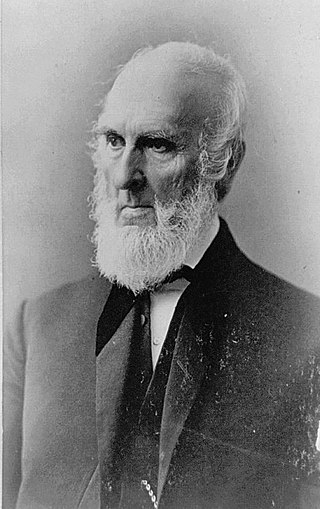
John Greenleaf Whittier was an American Quaker poet and advocate of the abolition of slavery in the United States. Frequently listed as one of the fireside poets, he was influenced by the Scottish poet Robert Burns. Whittier is remembered particularly for his anti-slavery writings, as well as his 1866 book Snow-Bound.

Barbara Fritchie, also known as Barbara Frietchie, and sometimes spelled Frietschie, was a Unionist during the Civil War. She became part of American folklore in part from a popular poem by John Greenleaf Whittier.

The John Greenleaf Whittier Homestead is the birthplace and home of American Quaker poet and abolitionist John Greenleaf Whittier. It currently serves as a museum. The homestead is located at 305 Whittier Road in Haverhill, Massachusetts.
Nationality words link to articles with information on the nation's poetry or literature.
Nationality words link to articles with information on the nation's poetry or literature.
Nationality words link to articles with information on the nation's poetry or literature.
Nationality words link to articles with information on the nation's poetry or literature.
Nationality words link to articles with information on the nation's poetry or literature.
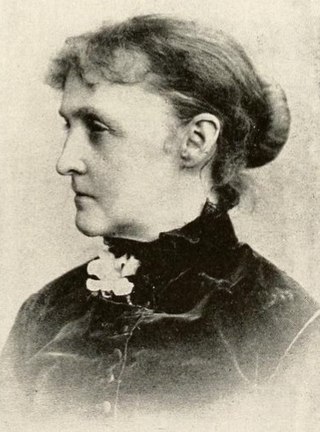
Sarah Morgan Bryan Piatt was an American poet. Her career began in the mid-1850s and lasted into the early twentieth century. She published hundreds of poems in nationally circulated newspapers, magazines, and anthologies as well as in eighteen volumes of poems, two of which she co-authored with her husband, the poet John James Piatt . Although Sarah Piatt is not well known today, during her lifetime her work was widely read and reviewed in the U.S. and Europe.

"The Village Blacksmith" is a poem by Henry Wadsworth Longfellow, first published in 1840. The poem describes a local blacksmith and his daily life. The blacksmith serves as a role model who balances his job with the role he plays with his family and community. Years after its publication, a tree mentioned in the poem was cut down and part of it was made into an armchair which was then presented to Longfellow by local schoolchildren.

"A Psalm of Life" is a poem written by American writer Henry Wadsworth Longfellow, often subtitled "What the Heart of the Young Man Said to the Psalmist". Longfellow wrote the poem not long after the death of his first wife and while thinking about how to make the best of life. It was first published anonymously in 1838 before being included in a collection of Longfellow's poems the next year. Its inspirational message has made it one of Longfellow's most famous poems.
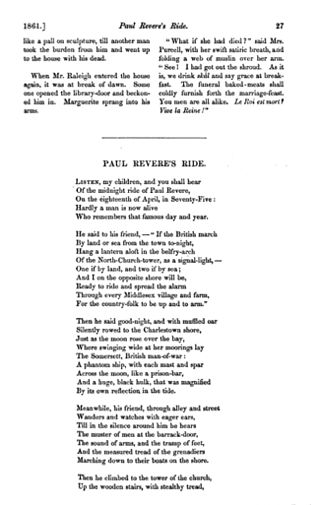
"Paul Revere's Ride" is an 1860 poem by American poet Henry Wadsworth Longfellow that commemorates the actions of American patriot Paul Revere on April 18, 1775, although with significant inaccuracies. It was first published in the January 1861 issue of The Atlantic Monthly. It was later retitled "The Landlord's Tale" in Longfellow's 1863 collection Tales of a Wayside Inn.

Snow-Bound: A Winter Idyl is a long narrative poem by American poet John Greenleaf Whittier first published in 1866. The poem, presented as a series of stories told by a family amid a snowstorm, was extremely successful and popular in its time. The poem depicts a peaceful return to idealistic domesticity and rural life after the American Civil War.
Angela Sorby is an American poet, professor, and literary scholar.
Barefoot Boy may refer to:
"Little Things" is a 19th-century poem by Julia Abigail Fletcher Carney, written in Boston, Massachusetts.
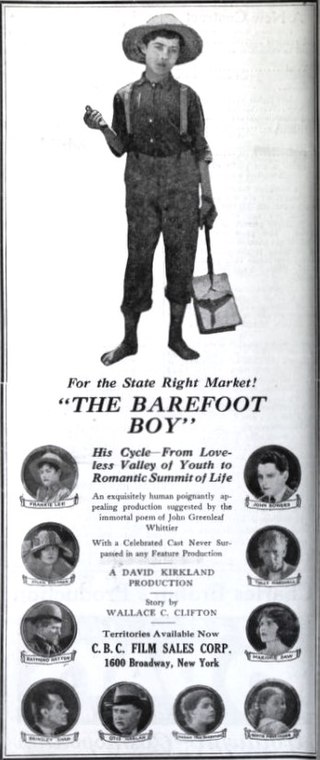
The Barefoot Boy is a 1923 American silent drama film directed by David Kirkland and starring John Bowers, Marjorie Daw, and Sylvia Breamer. The film is based upon a poem of the same name by John Greenleaf Whittier. The film was released by the CBC Film Sales Corporation, which would later become Columbia Pictures.
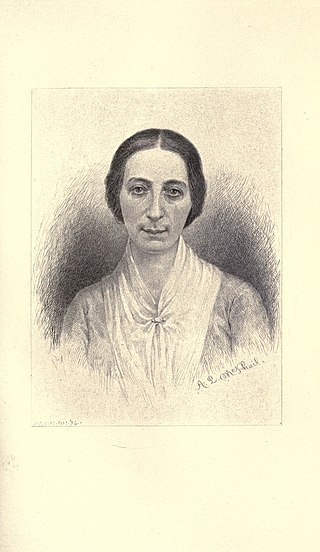
Elizabeth Hussey Whittier was an American poet and abolitionist, who founded the Female Anti-Slavery Society in Boston in 1833. Alongside her mother, she is credited with encouraging her brother John Greenleaf Whittier's interests in literature and poetry, and was his close companion and collaborator until her death.
"Howard at Atlanta" is an 1868 poem by John Greenleaf Whittier. Whittier based his poem on an interaction between Oliver Otis Howard and Richard R. Wright, who was twelve years old at the time, when Wright told Howard to "tell 'em we're rising".